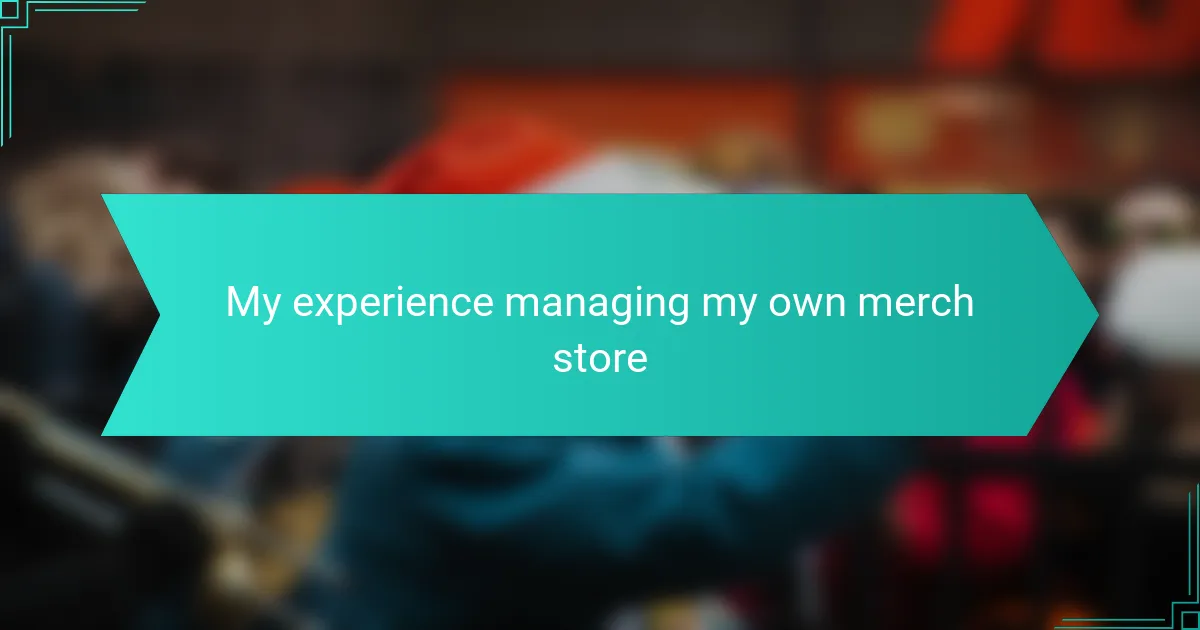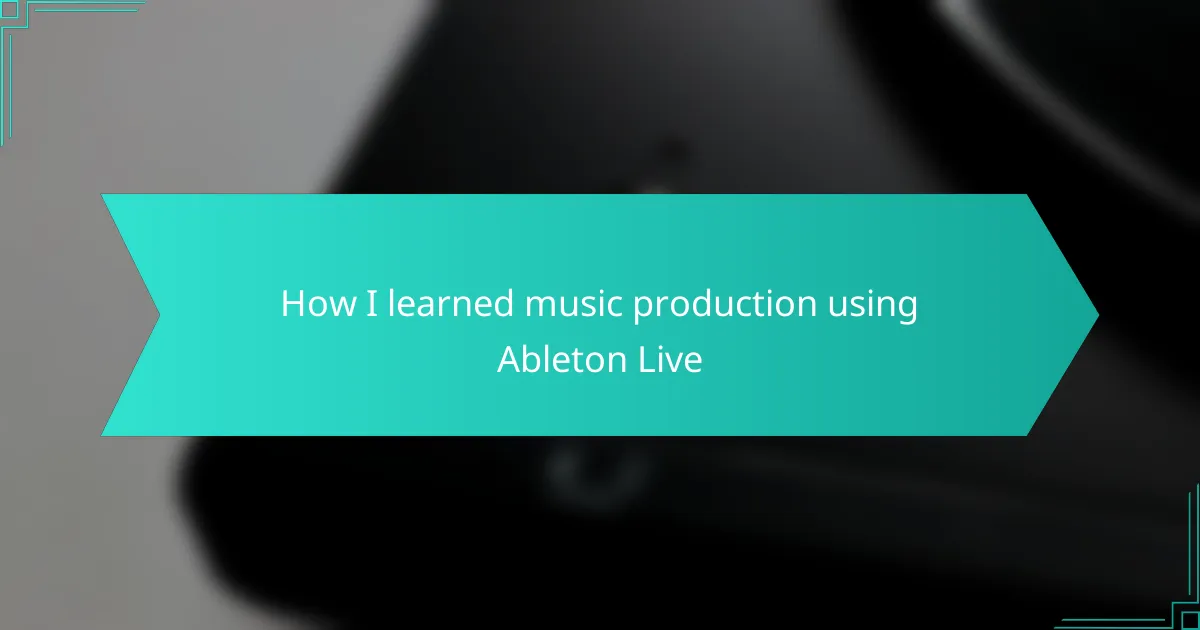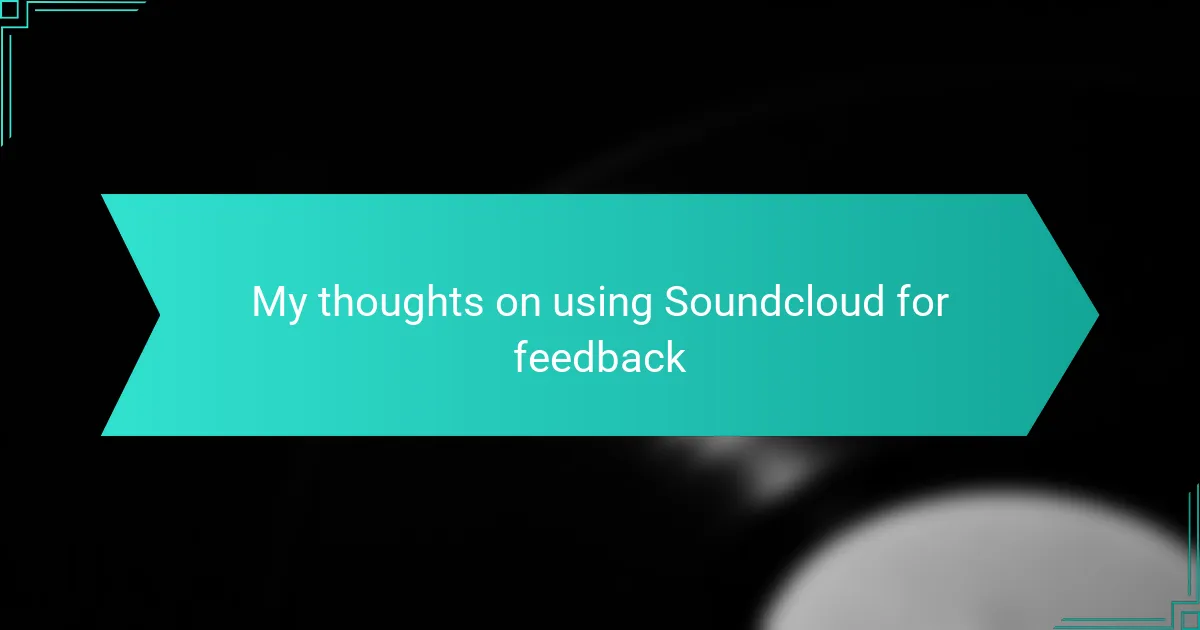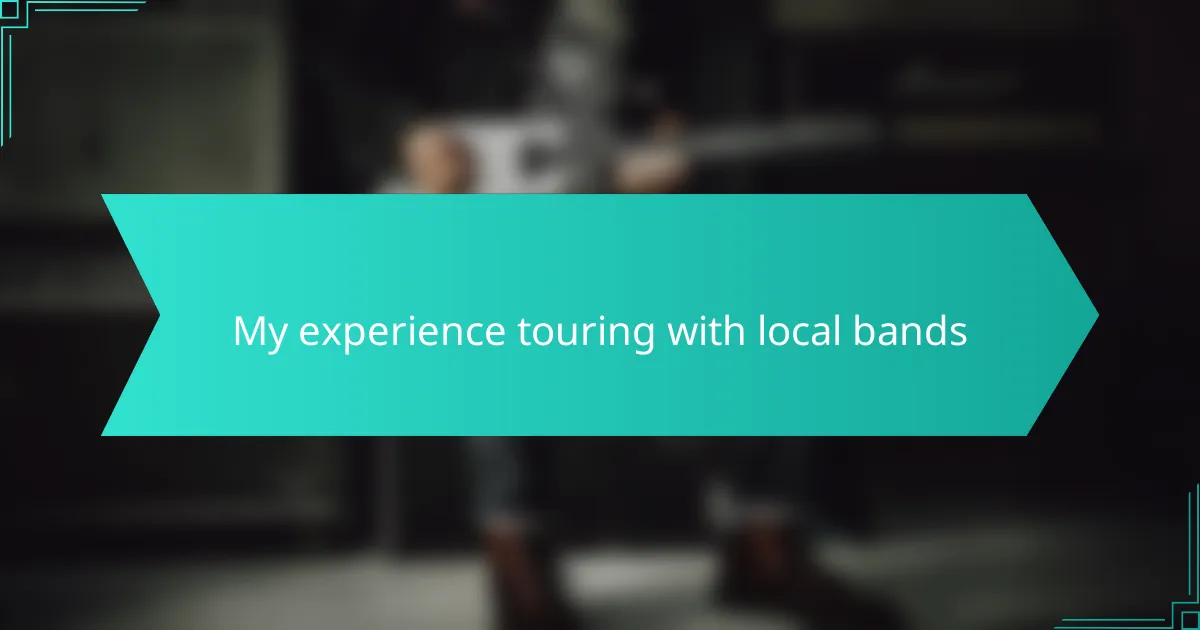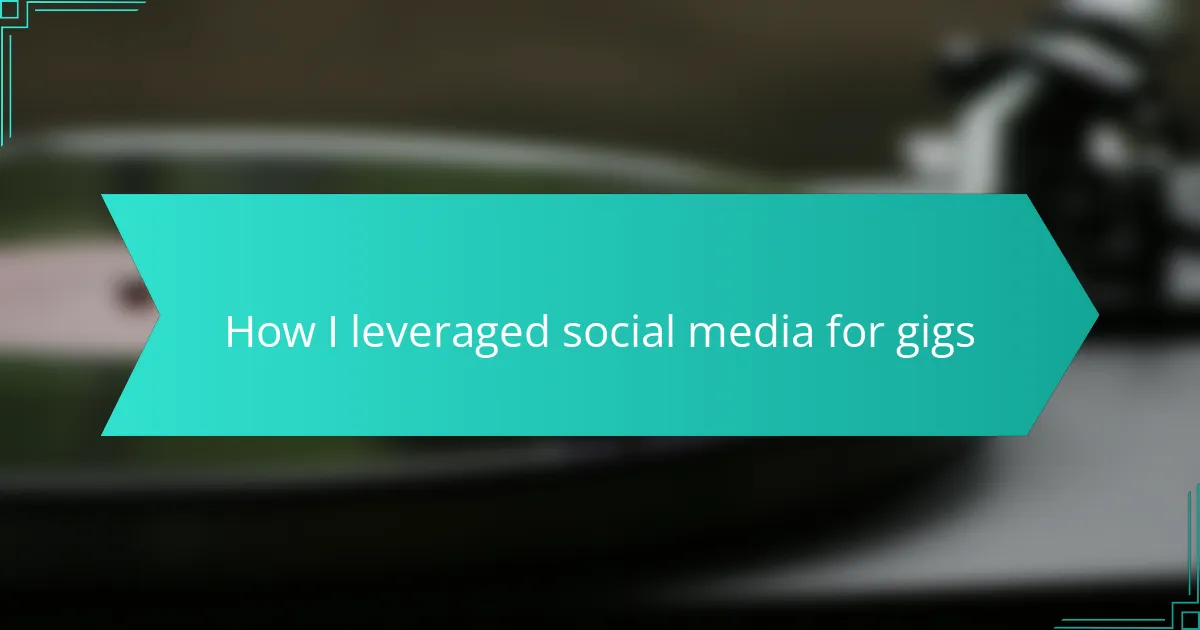Key takeaways
- Merchandise builds a deep emotional connection with fans and serves as an essential marketing tool, fostering loyalty and visibility.
- Choosing the right platform and products is crucial for success; customization and understanding audience preferences can enhance engagement.
- Authentic storytelling and collaborations with other artists can effectively market merchandise and broaden reach.
- Personal touches, such as handwritten notes, improve customer engagement and strengthen fan loyalty.
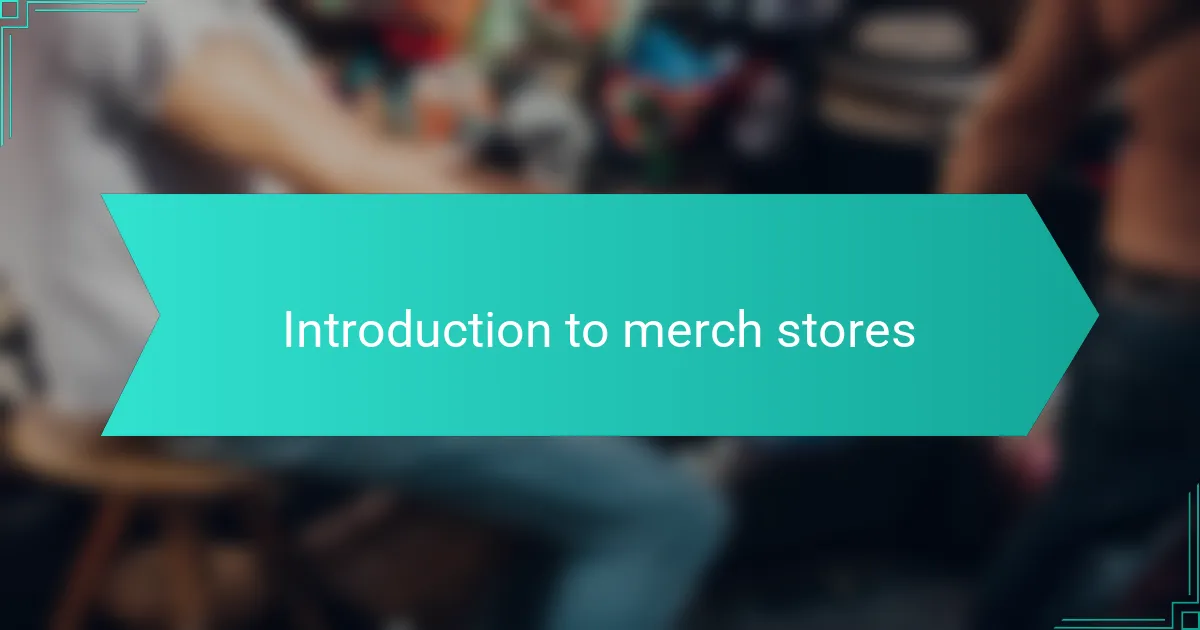
Introduction to merch stores
Merch stores have become a vital aspect of a musician’s brand and income stream. I remember when I first launched my store; it felt like I was stepping into a whole new world of creativity and entrepreneurship. The excitement of seeing my designs on T-shirts and posters was thrilling but also a bit overwhelming.
Creating a merch store is not just about selling products; it’s about building a connection with your fans. I often ask myself: how can I make my merchandise resonate with my audience? For me, it was finding designs that reflect my music and values. This connection turns a simple t-shirt into a conversation starter or a cherished memory for my fans.
In my experience, setting up an online store can feel daunting, but it offers a fantastic opportunity to express yourself. The process forces you to think outside the box and take ownership of your artistic identity. By sharing a piece of myself through my merch, I’ve fostered a deeper relationship with my listeners, which keeps them coming back for more.
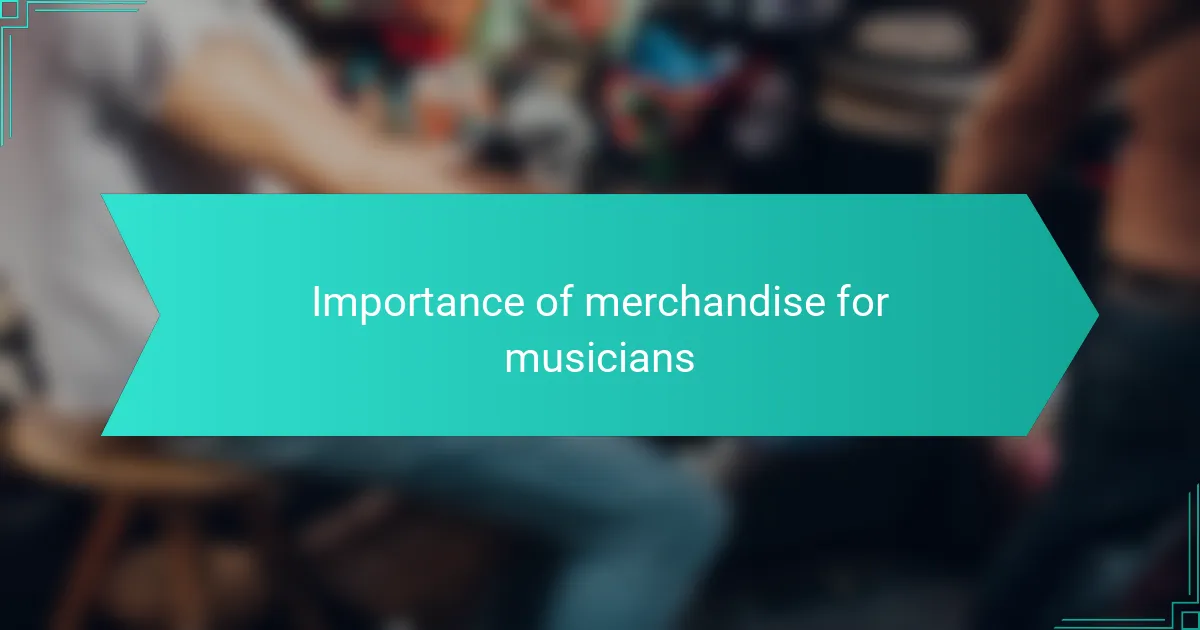
Importance of merchandise for musicians
Merchandise plays a crucial role in a musician’s career, serving as more than just a revenue stream. I remember the thrill of seeing fans wearing my band’s T-shirts at shows; it felt like our connection extended beyond music into their everyday lives. This emotional bond can create a loyal fanbase, turning casual listeners into dedicated supporters.
Beyond emotional significance, merchandise can also represent an essential part of marketing. It’s a tangible way for fans to express their support, and this visibility can lead to new listeners discovering your music. Here are some key reasons why merchandise is important for musicians:
- Creates Additional Income: Supplement your revenue from gigs and streaming.
- Builds Brand Identity: Merchandise helps in defining your image and style.
- Enhances Fan Engagement: Offers fans a way to connect and show their loyalty.
- Increases Visibility: Fans wearing your merch can act as walking advertisements.
- Fosters Community: Encourages a sense of belonging among fans who share interests.
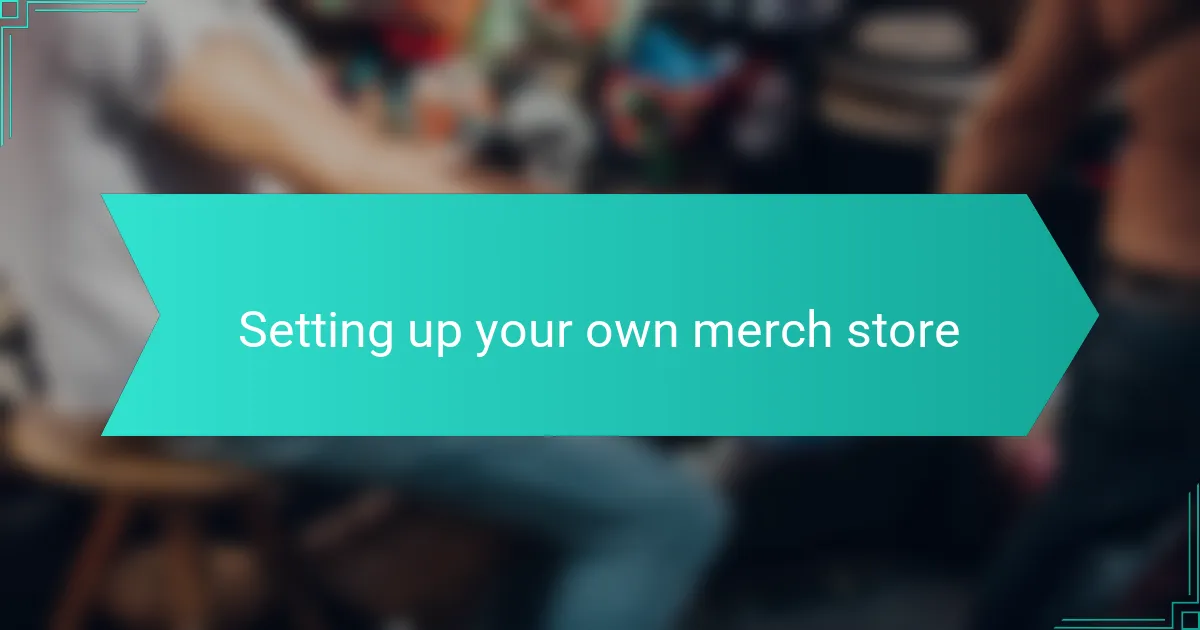
Setting up your own merch store
Setting up my own merch store was both exciting and daunting. I remember the rush of brainstorming designs and the thrill of seeing my ideas come to life on actual products. One key detail I learned is the importance of choosing the right platform—it can really make or break the experience. For instance, I started with a popular online marketplace but later transitioned to my own website, which allowed for greater customization and control over sales.
Another lesson was understanding my audience. Initially, I thought a broad range of products would appeal to everyone, but I soon realized that connecting with my fans through targeted, theme-based merchandise resonated much better. Now, when I design new items, I deeply consider what my listeners would genuinely like to wear or use.
Here’s a quick comparison of different platforms I explored while setting up my merch store:
| Platform | Pros and Cons |
|---|---|
| Etsy | Great for handmade items; high competition. |
| Bandcamp | Integrated music sales; percentage taken from sales. |
| Shopify | Customizable and user-friendly; subscription fees apply. |
| Custom Website | Full control and branding; time-consuming setup. |
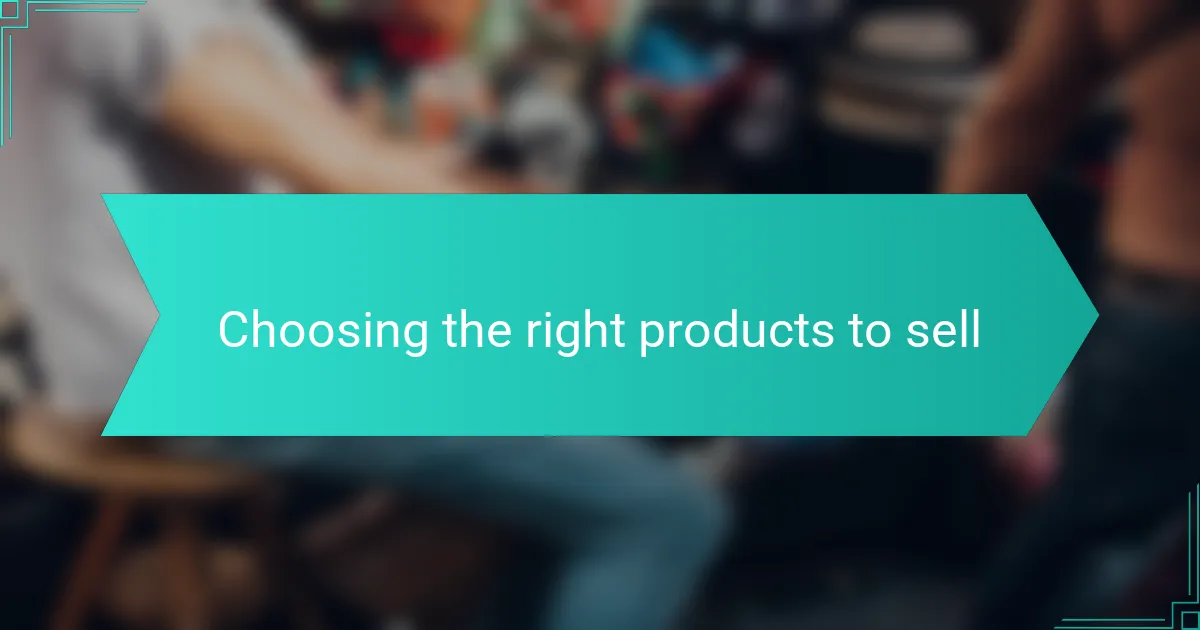
Choosing the right products to sell
When I started my own merch store, choosing the right products was both exciting and daunting. Initially, I felt overwhelmed by the options. I remember spending hours browsing through suppliers, trying to figure out what would resonate with my fans. I quickly learned that it’s important to balance my artistic style with what my audience actually wants. For example, while I love unique items like handmade jewelry, my fans seemed to prefer classic tees and hoodies.
I also discovered the value of limited edition items. When I released a small batch of exclusive vinyl records, the response was incredible. It not only boosted my sales but also deepened my connection with my audience. Thinking about what your fans would wear or use every day can help guide your choices. It’s about creating something that reflects both your brand and your followers’ preferences.
Here’s a little comparison I made while deciding between different product types:
| Product Type | Pros |
|---|---|
| T-Shirts | Widely popular, easy to design, affordable and can come in various styles. |
| Vinyl Records | Great for collectors, helps create a nostalgic feel, can tell a story about your music. |
| Stickers | Low-cost, easy to distribute, fun designs can go viral. |
| Hoodies | High-margin items, comfortable, can be marketed as limited editions. |
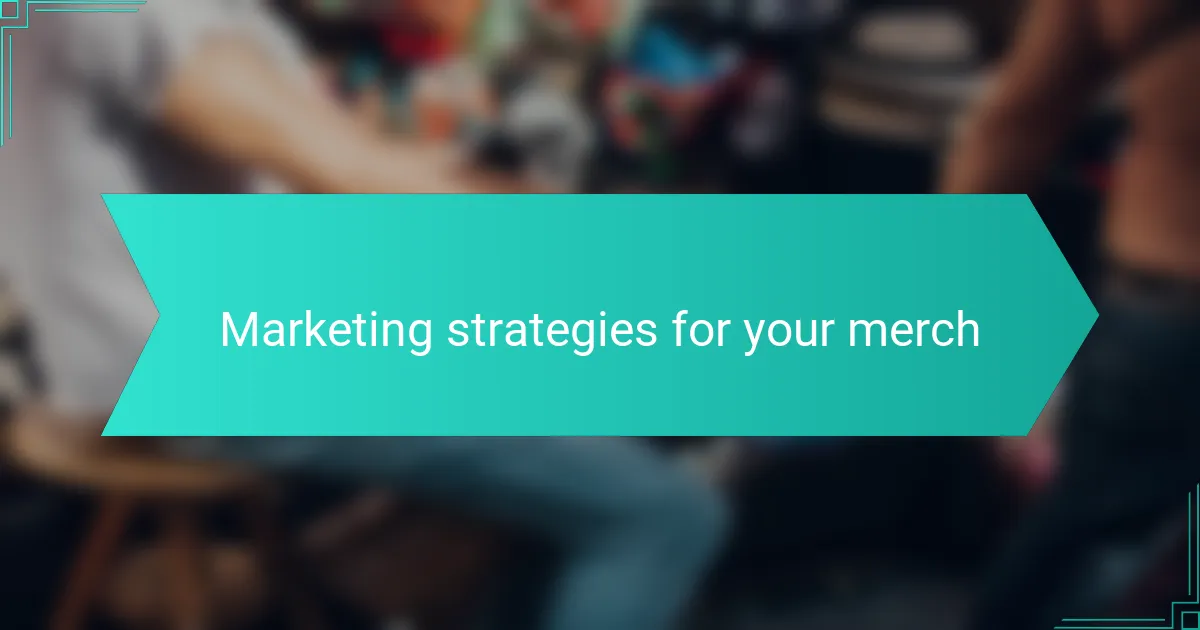
Marketing strategies for your merch
When it comes to marketing my merch, I’ve found that authenticity goes a long way. Sharing my journey and the stories behind the designs has helped create a deeper connection with my fans. I often post updates on social media, showing the behind-the-scenes process of creating new items, which not only excites my audience but also gives them a sense of ownership in the merch.
Another strategy that worked for me was collaborating with other artists. This not only broadened my audience but also added a fresh perspective to my designs. I remember teaming up with a local painter for a limited-edition series that sold out within days, proving that partnerships can be a powerful tool in marketing.
In addition, I’ve learned the importance of creating exclusivity. Offering limited-time merch during gigs or online events has proven effective. It creates urgency and encourages fans to make a purchase before they miss out. Just the other day, I ran a flash sale for a special item, and the excitement it generated was exhilarating!
| Strategy | Benefits |
|---|---|
| Storytelling | Builds connection and authenticity |
| Collaboration | Access to broader audiences |
| Exclusivity | Creates urgency and excitement |
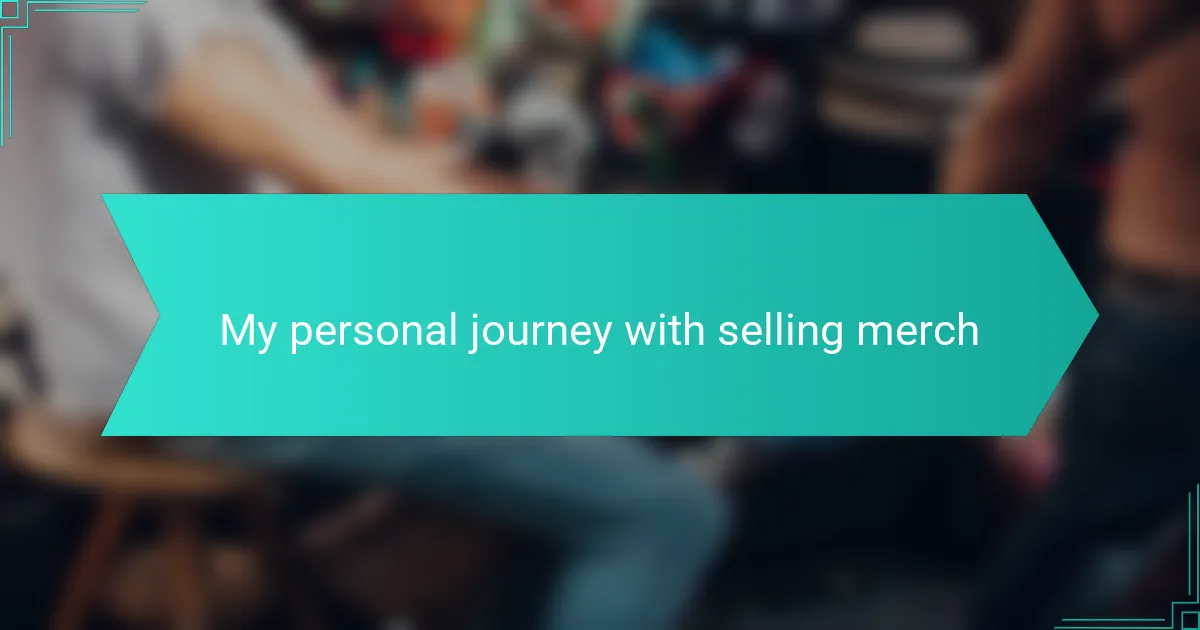
My personal journey with selling merch
Starting my own merch store was a true adventure. I remember the excitement of unpacking my first batch of T-shirts—it felt like I was sharing a piece of my musical journey with my fans. However, it wasn’t all smooth sailing; navigating logistics and inventory taught me valuable lessons about planning and customer service.
I also found that connecting with my fans through merch deepened our relationship. When someone wore a shirt with my logo, it wasn’t just merchandise to me; it was a badge of support. Managing the store has had its ups and downs, but seeing my designs loved by others makes it all worthwhile.
Here’s a quick comparison of some key experiences I had while managing my merch store:
| Aspect | Experience |
|---|---|
| Excitement | Unpacking my first inventory and seeing my designs come to life. |
| Challenges | Dealing with shipping issues and understanding inventory management. |
| Connection | Building a relationship with fans through personalized merch. |
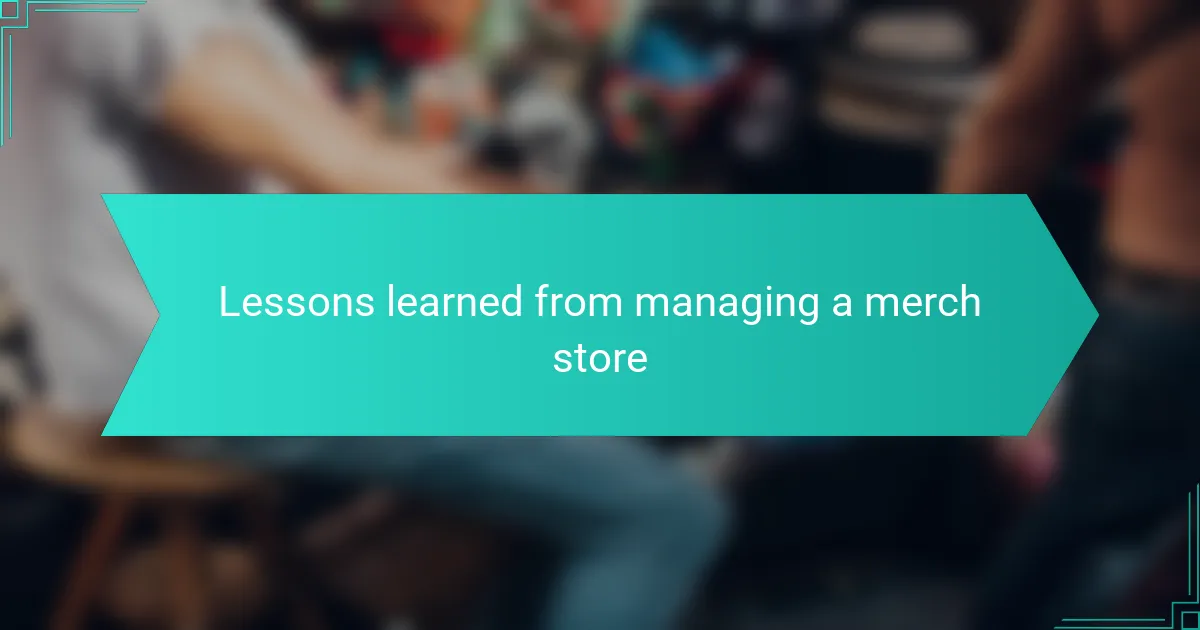
Lessons learned from managing a merch store
Managing my own merch store was an eye-opening experience. One lesson I learned was the importance of knowing my audience. Early on, I made the mistake of ordering a large quantity of items that didn’t resonate well with my fans, leading to excess inventory and disappointed expectations.
Another vital takeaway was the significance of branding. I realized that every piece of merch represents a piece of my identity as an artist. I wanted my audience to feel a connection to my music through the merchandise they purchased. The designs I chose needed to reflect my style, and I spent hours tweaking them until they felt just right.
Finally, customer engagement was paramount. I found that personal touches, like handwritten notes in packages, made my fans feel special and valued. This connection not only boosted my sales but also strengthened the loyalty of my fanbase.
| Lesson | Experience |
|---|---|
| Understanding Audience | Ordered items that didn’t resonate, leading to surplus. |
| Branding Importance | Items must reflect my identity, spent time perfecting designs. |
| Customer Engagement | Handwritten notes increased sales and fan loyalty. |
